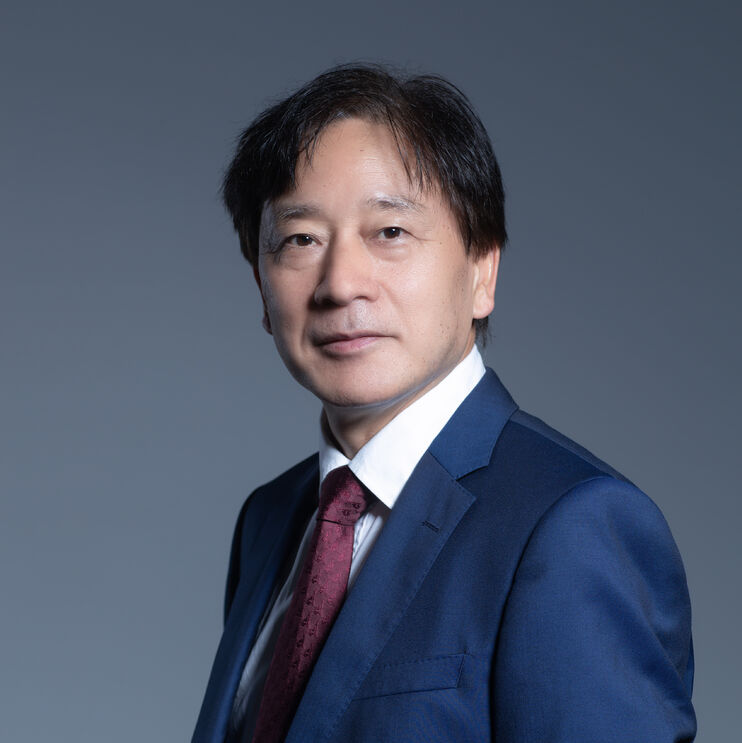个人简介
金耀初,1966年生,江苏吴江人,欧洲科学院院士、国际电气和电子工程师协会会士(IEEE Fellow)、国家特聘专家、长江学者讲座教授。曾任芬兰科学院与芬兰国家创新局“芬兰杰出教授”、德国联邦教育与研究部“洪堡人工智能教席教授”。分别于1988年、1991年、1996年获浙江大学工学学士、工学硕士、和工学博士学位,并于2001年获德国波鸿鲁尔大学工学博士学位。1991年至1997年在浙江大学电机系任助教、讲师和副教授,1998年至1999年在美国新泽西州立大学工业工程系从事博士后研究, 2001年至2010年在德国本田(欧洲)研究院任资深科学家、主任科学家, 2010年加入英国萨里大学计算机系任计算智能讲席教授,2019年升任“萨里杰出教授”, 2021至2023年担任德国比勒菲尔德大学工学院洪堡人工智能教席教授。曾任《IEEE认知与发育系统汇刊》主编,现任IEEE计算智能学会候任主席。2023年10月全职加入西湖大学工学院,受聘人工智能讲席教授,并创立“可信与通用人工智能实验室“。
学术成果
金耀初教授已出版专著5部,在多个IEEE汇刊及CVPR、NeurIPS、ICLR及ACM MM等学术会议发表论文500余篇,获美国、欧盟和日本专利9项。据Google Scholar, 其论文被引用总次数43,000余次,h-index 为103,入选Web of Science 2019、2020、2021、2022年度 “全球高被引科学家”。多次获“IEEE进化计算汇刊优秀论文奖”及“IEEE 计算智能杂志优秀论文奖”。曾任《IEEE认知与发育系统汇刊》主编,IEEE计算智能学会副理事长,两次担任IEEE 杰出演讲人。任2016 IEEE 计算智能系列研讨会总主席、2020 IEEE 进化计算大会主席等。
长期从事人工智能与计算智能的理论、算法和工程应用研究,特别是数据驱动的优化、多目标优化,演化机器学习,安全与隐私保护的机器学习与优化、图神经网络组合优化、演化发育通用人工智能及形态发育自组织机器人等。研究成果已成功应用于实际复杂工程系统的优化(包括本田公司的喷气发动机,空中客车机体设计,高提升力机翼系统,车辆空气动力学优化,液化气码头设计,Bosch智能取暖系统优化,混合电动车控制器设计等),汽车自适应巡航控制,多机器人自组织,医学图像处理,人类行为识别,疫苗预测,抗生素生产过程基因调控重构等。先后获欧盟第七框架研究计划、德国联邦教育与研究部、英国工程和自然科学研究会,英国皇家工程学会、芬兰科学院、中国科技部、中国自然科学基金会,以及包括本田、博世、空中客车、华为、英伟达等多家国际著名企业的资助。
金耀初教授是英国自然和工程科学研究会(EPSRC)会审专家,芬兰科学院计算机学科会审专家,意大利2004-2010科研质量评估同行评审专家,欧盟“人类大脑计划(HBP)”会审专家。也是德国DAAD,荷兰NWO,加拿大Killam Fellowship Program,新西兰Marsden Fund, 英国RAE,Leverhulme Trust和欧盟ESF等通讯评审专家。
代表论文(*代表通信作者)
专著:
1. Y. Jin. Computational evolution of neural and morphological systems – Towards evolutionary developmental artificial intelligence. Springer, July 2023
2. Y. Jin, H. Zhu, J. Xu, and Y. Chen. Federated Learning: Fundamentals and Advances. Springer, Singapore, November 2022
3. Y. Jin, H. Wang, and C. Sun. Data-Driven Evolutionary Optimization. Springer, June 2021
会议论文:
1. P. Liao, Y. Jin* and Wenli Du. EMT-NAS: Transferring architectural knowledge between tasks from different datasets. The IEEE/CVF Conference on Computer Vision and Pattern Recognition 2023 (CVPR 2023), Vancouver, Canada, June 18-22, 2023
2. G. Xie, J. Wang, J. Liu, Y. Jin, and F. Zheng. Pushing the limits of fewshot anomaly detection in industry vision: Graphcore. The Eleventh International Conference on Learning Representations (ICLR 2023), Kigali, Rwanda, May 1-5, 2023
3. Y. Hong, Y. Jin*, and Y. Tang. Rethinking individual global max in cooperative multi-agent reinforcement learning. The Thirty-Sixth Annual Conference on Neural Information Processing Systems (NeurIPS 2022), New Orleans, November 26 - December 4, 2022
4. G. Xie, J. Wang, Y. Huang, Y. Zheng, F. Zheng, and Y. Jin. FedMed-ATL: Misaligned unpaired brain image synthesis via affine transform loss. The 30th ACM International Conference on Multimedia (ACM MM 2022), 2022
期刊论文:
1. F. Ntelemis, Y. Jin* and S. Thomas. A generic self-supervised framework of learning invariant discriminative features. IEEE Transactions on Neural Networks and Learning Systems, 2023 (accepted)
2. H. Zhu, X. Wang, and Y. Jin*. Federated many-task Bayesian optimization. IEEE Transactions on Evolutionary Computation, 2023 (accepted)
3. X. Wang, Y. Jin*, W. Du, and J. Wang. Evolving dual-threshold Bienenstock-Cooper-Munro learning rules in Echo State Networks. IEEE Transactions on Neural Networks and Learning Systems, 2022 (accepted)
4. Y. Xiao, Y. Jin*, and K. Hao. Adaptive prototypical networks with label words and joint representation learning for few-shot relation classification. IEEE Transactions on Neural Networks and Learning Systems, 34(3): 1406 – 1417, 2023
5. Q. Liu, Y. Jin*, M. Heiderich, and T. Rodemann. Coordinated Adaptation of Reference Vectors and Scalarizing Functions in Evolutionary Many-objective Optimization. IEEE Transactions on Systems, Man, and Cybernetics: Systems, 53(2): 763 – 775, 2022
6. F. Ntelemis, Y. Jin*, and S. A. Thomas. Image clustering using an augmented generative adversarial network and information maximization. IEEE Transactions on Neural Networks and Learning Systems, 33(12): 7461 – 7474, 2022
7. Q. Liu, Y. Jin*, M. Heiderich, T. Rodemann and G. Yu. An adaptive reference vector guided evolutionary algorithm using growing neural gas for many-objective optimization of irregular problems. IEEE Transactions on Cybernetics, 52(5): 2698 – 2711, 2022
8. X. Wang, Y. Jin* and K. Hao. Computational modeling of structural synaptic plasticity in echo state networks. IEEE Transactions on Cybernetics, 52(10): 11254-11266, 2022
9. H. Zhu and Y. Jin*. Real-time federated evolutionary neural architecture search. IEEE Transactions on Evolutionary Computation, 26(2): 364-378, 2022
10. J. Xu, W. Du, Y. Jin*, W. He, and R. Cheng. Ternary compression for communication-efficient federated learning. IEEE Transactions on Neural Networks and Learning Systems, 33(3): 1162-1176, 2022
11. A. R. Shirazi and Y. Jin*. Regulated morphogen gradients for target surrounding and adaptive shape formation. IEEE Transactions on Cognitive and Developmental Systems, 13(4): 818-826, 2021
12. Y. Chen, X. Sun, and Y. Jin*. Communication-efficient federated deep learning with layer-wise asynchronous model update and temporally weighted aggregation. IEEE Transactions on Neural Networks and Learning Systems. 31(10): 4229 – 4238, 2020
13. H. Zhu and Y. Jin*. Multi-objective evolutionary federated learning. IEEE Transactions on Neural Networks and Learning Systems, 31(4): 1310-1322, 2020
14. Y. Jin*, H. Wang, T. Chugh, D. Guo, and K. Miettinen. Data-driven evolutionary optimization: An overview and case studies. IEEE Transactions on Evolutionary Computation, 23(3): 442-458, 2019
15. J. Ding, C. Yang, Y. Jin* and T. Chai. Generalized multi-tasking for evolutionary optimization of expensive problems. IEEE Transactions on Evolutionary Computation, 23(1): 44-58, 2019
16. T. Chugh, Y. Jin*, K. Miettinen, J. Hakanen, and K. Sindhya. A surrogate-assisted reference vector guided evolutionary algorithm for computationally expensive many-objective optimization. IEEE Transactions on Evolutionary Computation, 21(1): 129-142, 2018
联系方式
电子邮箱:jinyaochu@westlake.edu.cn
金耀初实验室拟开展可信及通用人工智能的理论、算法及应用研究,主要研究方向包括:(1)通用人工智能及类脑智能,包括脉冲神经网络及神经可塑性、神经系统演化发育、脑体协同演化发育、演化发育系统、记忆模型、人工生命;(2)可信人工智能,包括隐私保护、安全及公平的机器学习及优化、鲁棒学习与优化、数据驱动的多目标演化优化与贝叶斯优化、图神经网络组合优化、预训练生成式大模型优化;(3)群体智能,包括形态发生自组织系统、自组织群机器人及模块机器人、多智能体强化学习等。 现课题组诚聘上述研究方向的杰出人才作为Co-PI,同时招聘研究员、副研究员、助理研究员、科研助理以及行政助理。
